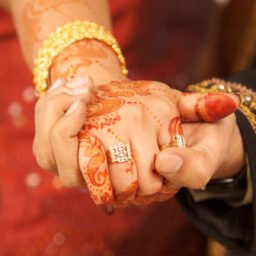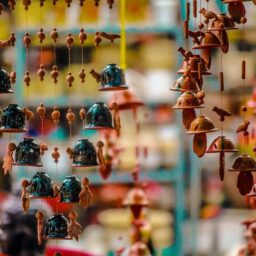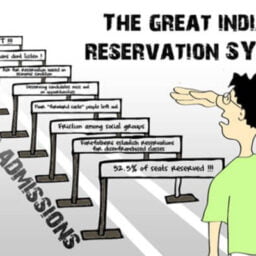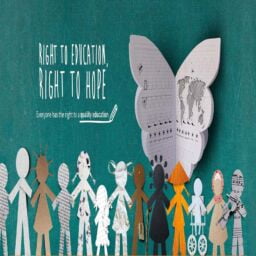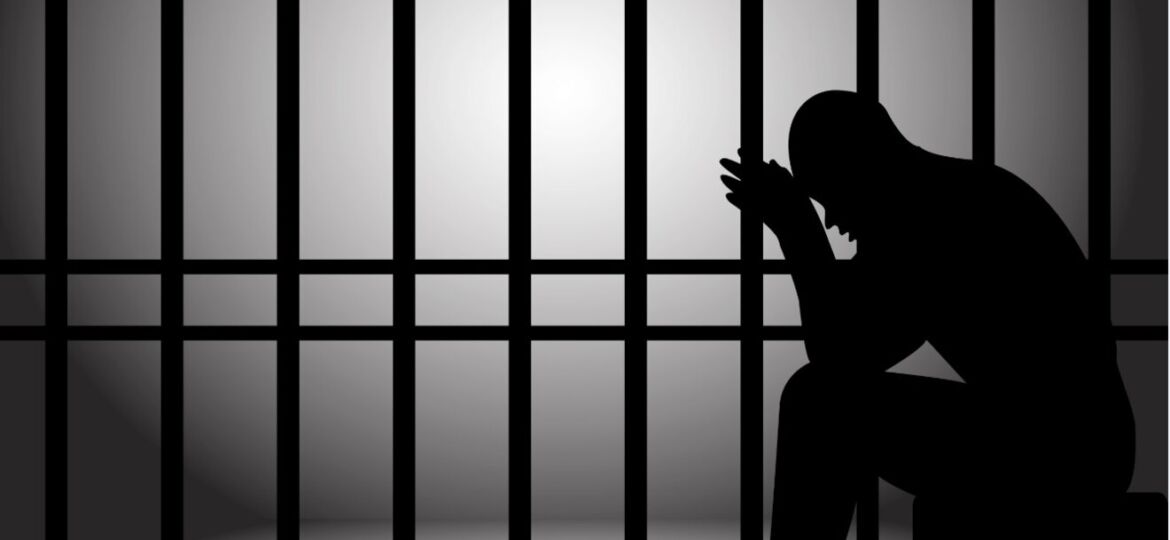
INTRODUCTION
Every society has its evils and every society has established methods to fight such evil but in order to fight such evils, the society not only practices preventive and punitive measures but also torments in attainment to make the evil suffer for the consequences it created.
The question is, to what extent such evil shall be incarcerated in an inhumane way? Whether committing mere evil against the society shall attract the same penance as compared to large-scale evil? Whether seizure of fundamental and legal rights of prisoners is justified? Whether a person incarcerated loses his rights vested in Article 21 of the Constitution of India? Whether the incarceration system of society is justified?
It is significant to eliminate the inhumane treatment a person gets in Indian prisons, whether under trial or convicted, because, the human rights of such individuals are inalienable in nature, and no authority reserves rights to withhold any human right of any individual, irrespective of what crime he/she committed or facing trial for.
Highly quoted terms like ‘equality, ‘non-discrimination’, life and personal liberty, etc. are only myths inside a prison and no such thing as ‘Human Rights’ or mere ‘rights’ exists in reality, it is the inhumane treatment and derogatory conditions which often leads to deaths in prisons, but who should be held accountable?
HISTORY
The concept of prisons is no new for society and has always existed for one reason or another. The evidence of prisons can be traced back to the ancient sites of Mesopotamian.[1] Since noble days, prisons have been used to detain a person who has committed evil against society.
The British introduced a system of draconian legal provisions where severe punishments were imposed on the persons but later such provisions were abolished and a codified law was enforced which governed provisions of prisoners and imprisonment i.e. The Prisons Act, 1894. The act reserved duties of jail authorities, accommodation, and examination of prisoners, and separation of prisoners on grounds like male, female, convicted or under trial, civil and criminal.
The government of India in the year 1957 constituted the All India Jail Manual Committee to draft a model prison manual. In the year 1960, the committee submitted its report and consequently, The Model Prison Manual was enforced, the manual which in contemporary times governs Indian prisons.
RIGHTS OF PRISONERS IN INDIA
Under the wide and broad interpretation of Article 21 of the Constitution of India, which bestows inalienable rights of life and personal liberty, every person in India including prisoners is entitled to such rights.
Right to be treated with humanity: every person whose liberty has been taken away shall be treated with humanity and dignity and the conviction of a person shall not stand as a barrier between an individual and his fundamental rights.
Right against custodial violence: custodial violence is the most severe infringement of the rights of an individual. Methods to torture an individual to gain confession or information are practiced by policemen on daily basis. Such acts are a direct violation of Article 20 of the Constitution of India.
Right to a speedy and fair trial: it is established legal jurisprudence that no person shall be convicted without trial and such trial shall not be prejudiced and it is a part of Article 21 of the Constitution of India. Denial of the right to a speedy trial is a denial of justice[2] and such trial should also be speedy in nature to meet the ends of justice.
Right to legal aid: it refers to free legal assistance of any kind to the prisoners. The 42nd Amendment Act led to the origin of free legal aid under Article 39A of the Constitution of India. Such rights are important to promote legal awareness among prisoners about their rights.
Right to bail: bail acts as an advocate of the right of personal liberty and it is an acknowledged legal provision that bail shall be given to a person until the court reaches a conclusion and finds the accused guilty.
Rights against Solitary Confinement: confinement in a separate very small jail cell, away from other prisoners, is in itself inhumane in nature, due to no light and food for days such confinement critically affects the prisoners, and therefore such confinement shall not be exercised.
INTERNATIONAL SCENARIO
The United Nations (UN) always advocates human rights in every possible way and to protect the rights of prisoners, the UN laid down “Basic Principles for the Treatment of Prisoners[3]”, apart from this there are several UN documents that strive to protect the rights of prisoners, i.e. International Covenant on Civil and Political Rights[4], Convention against Torture and Other Cruel, Inhuman or Degrading Treatment or Punishment[5], United Nations Standard Minimum Rules for the Treatment of Prisoners[6], Body of Principles for the Protection of All Persons under Any Form of Detention or Imprisonment[7], United Nations Standard Minimum Rules for the Administration of Juvenile Justice[8]
CONCLUSION
The primary step of all legislative, executive, and judiciary should be to scrutinize the existing laws relating to prisoners and prisons in India to protect the rights and interests of prisoners. Apart from the legal aspect, the judiciary and executive should treat an under-trial and convicted person differently.
The infrastructure of all prisons shall be maintained and upgraded, no person shall be treated inhumanely in jails either by the jail administration or the other convicted prisoners.
It is vital to keep a close watch on the individuals in jail who are usually violating the rules and decorum of the prison to protect the rights of other prisoners of the prison. The judiciary must actively protect the rights of prisoners and therefore speedy justice shall be served in the court of law.
In absence of speedy trials, the ends of justice remain loose and no justice is served either to the accused or to the victim, in fact, due to the slow justice delivery system, the accused who is later held not guilty for any offense ultimately gets punishment for a crime which he never committed.
Guidelines to protect the rights and safety of prisoners shall be issued by the judiciary so that no rights of any prisoners are violated in judicial custody or prison.
Author(s) Name: Varchaswa Dubey (JECRC University, Jaipur)
[1] https://www.ancient-origins.net/history-ancient-traditions/prisons-and-imprisonment-ancient-world-punishments-used-maintain-public-020588
[2] State of Maharashtra v. Champala, AIR 1981 SC 1675
[3] Adopted and proclaimed by General Assembly resolution 45/111 of 14 December 1990, https://www.ohchr.org/Documents/ProfessionalInterest/basicprinciples.pdf
[4] https://www.ohchr.org/en/professionalinterest/pages/ccpr.aspx
[5] https://www.ohchr.org/en/professionalinterest/pages/cat.aspx
[6] https://www.unodc.org/documents/justice-and-prison-reform/Nelson_Mandela_Rules-E-ebook.pdf
[7] https://www.ohchr.org/en/professionalinterest/pages/detentionorimprisonment.aspx
[8] https://www.ohchr.org/documents/professionalinterest/beijingrules.pdf







